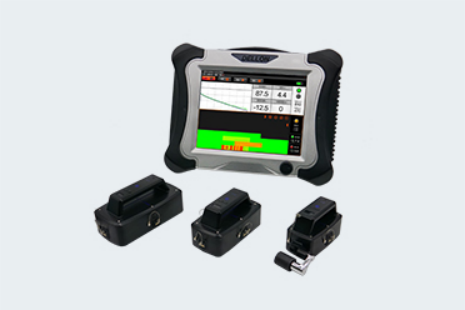Pulsed eddy current technology is a phenomenon that relies on high-frequency electric fields to induce brief electric currents, and is used for non-contact measurement and detection of material defects. In the field of petroleum and petrochemicals, pulsed eddy current technology has also been widely used and has become an important means of detecting pipelines, storage tanks, steel plates and other items.
Pulsed eddy current technology can conduct non-contact inspection of the inside of pipelines through the induction of high-frequency electromagnetic waves. Defects such as cracks and burrs in pipelines can be converted into resistivity or distortion signals for rapid and accurate diagnosis, effectively preventing safety issues such as pipeline leakage.
Pulsed eddy current technology can detect changes in tank wall thickness by sensing changes in magnetic fields. In view of the long-term high temperature, high pressure, wall thickness wear, corrosion and other problems inside the storage tank, pulsed eddy current technology can carry out high-precision measurements, detect problems in time, and prevent safety accidents.
Pulsed eddy current technology can detect defects such as cracks and burrs on steel plates, providing a new method for controlling the quality of steel plates. Pulsed eddy current technology can quickly and accurately detect hidden crack defects on the surface of steel plates, which helps control the quality of the annealing process and improve the quality of steel plate products.
Pulsed eddy current technology can perform non-destructive testing of the welding area to detect whether there are cracks, looseness and other defects in the weld. For large pipelines, storage tanks and other occasions, pulsed eddy current technology can perform rapid and accurate detection, find problems in time, and ensure the safety and reliability of welding quality.
Pulsed eddy current technology can detect the resistivity of metal pipes by inducing changes in magnetic fields. In the field of petroleum and petrochemicals, metal pipes are widely used in transportation pipelines, heating heat exchangers and other equipment. Pulsed eddy current technology can quickly and accurately detect their resistivity, understand the physical properties of the pipe, and provide important reference for process design.
In the field of petroleum and petrochemicals, acidic environment is a common situation. Pulsed eddy current technology can detect corrosion damage of metal materials in acidic environments by inducing changes in magnetic fields. For equipment such as metal pipes and storage tanks, corrosion damage will inevitably occur during use. Pulsed eddy current technology can help detect problems in time and take effective anti-corrosion measures.
In general, pulse eddy current detection technology is widely used in the petroleum and petrochemical fields. Its high-precision, high-efficiency, and non-contact detection characteristics make it an important means of detecting pipes, storage tanks, steel plates and other items. With the continuous advancement and development of technology, I believe that the application of pulsed eddy current technology in the field of petroleum and petrochemicals will become more abundant and perfect.

